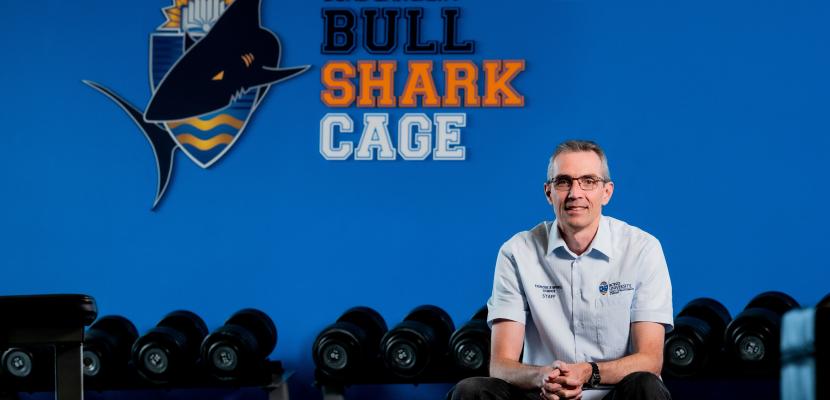
Education didn’t come naturally to Vernon Coffey.
Growing up in the small New Zealand town of Feilding, he struggled through high school, more interested in shooting hoops on the basketball court than hitting the books.
“I was a terrible student at high school, I struggled big time, I don’t even have Year 10 maths.
“I just scraped through my other Year 10 subjects, Year 11 was more of a disaster, I pretty much failed everything, but I went back to repeat it because of my love of basketball. I never finished that year either, once the basketball season was over, I lost interest.
“My family would try and tell you I had learning difficulties or ADHD before it was really a thing, maybe I did, maybe I didn’t, I don’t know. I would be willing to concede I had some behavioural issues, I was a bit of a ratbag in those days,” he said.
After dropping out of school he drifted, directionless and low on self-confidence.
It took Dr Coffey six years to secure his first job, feeding paper into a recycling machine which turned it into insulation for housing.
He eventually started driving the truck that collected the paper and cardboard, but knew it wasn’t what he wanted to do with his life.
Falling back on his passion, he enrolled in a one-year Certificate in Exercise Physiology at a local trades training provider, in the hope of being able to work at a gym.
Instead, it proved to be the first tentative step in a transformative education journey that has seen Dr Coffey recently appointed as Bond University’s new Head of Sport and Exercise Science.
“To say I was scared would be an understatement. I really applied myself, gave it as much effort as I possibly could do . . . and just trying to be a big sponge and taking in everything I could,” Dr Coffey said.
In his first exam, Dr Coffey scored 100 per cent, the only person in his class to do so.
At the end of the year, he took up a diploma option, before moving to the Waikato Institute of Technology in Hamilton, where he completed his Bachelor’s Degree in Sport and Exercise Science, with Honours.
Another move, this time to Australia, led to Dr Coffey earning his PhD in Exercise Physiology at RMIT University in Melbourne, before taking up a dual role as Senior Lecturer/Researcher at QUT and eventually coming to Bond as an Associate Professor at the end of 2014.
Dr Coffey is looking forward to his new position with both excitement and a little trepidation.
“It’s going to be great to be able to help lead the direction of the program and think about what our next step is and how we’re going to further innovate and add value to the education opportunities we offer.”
At the top of his list is continuing to improve the research profile of Bond Sport and Exercise Science, as well as its delivery of teaching.
A particular focus will be engaging with industry partners to provide students with practical experience and the best possible opportunities to apply their skills and knowledge.
As an educator and researcher, he’s a firm believer in not asking anyone to do anything he wouldn’t do himself. As such, he’s had 27 muscle biopsies over the course of his academic career – so far.
“When we look for research volunteers, when we’re talking to our students you have to live it, you have to experience these things if you really want to understand.”
Dr Coffey’s life is now very different to that of the young man who once fed paper into a mulcher while contemplating an uncertain future.
He hasn’t entirely left his past behind – he’s still a huge basketball fan, and the walls of his new office play host to a collection of sports teams caps and a banner from the San Antonio Spurs NBA team.
Another thing he’s retained from his past is an understanding of the difference education and people can make in someone’s life.
“I’ve had a lot of people influence me, particularly when I was a student…but being an educator and a teacher the value is in the people, whether it’s the educator or the student, it goes both ways.
It’s something I try and continue to this day and in this position as head of program that’ll be my message every year to incoming students, the power of knowledge…but the value in people.”